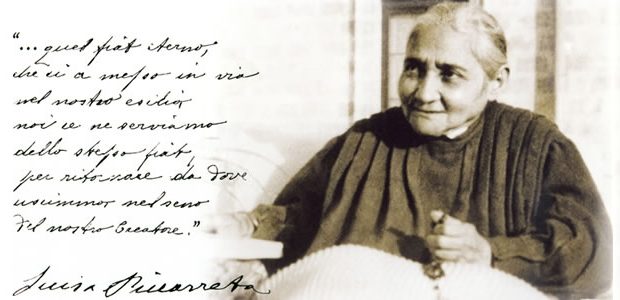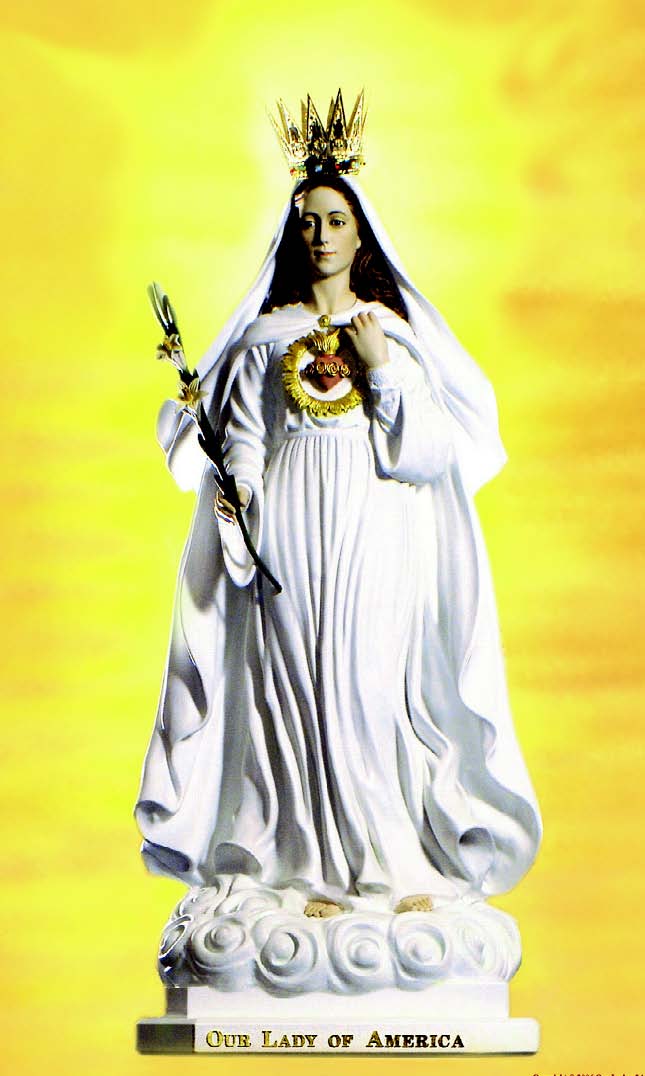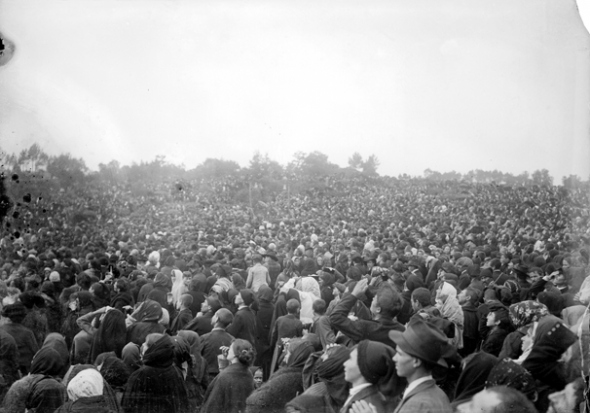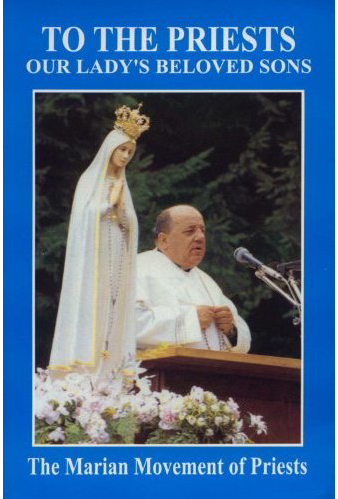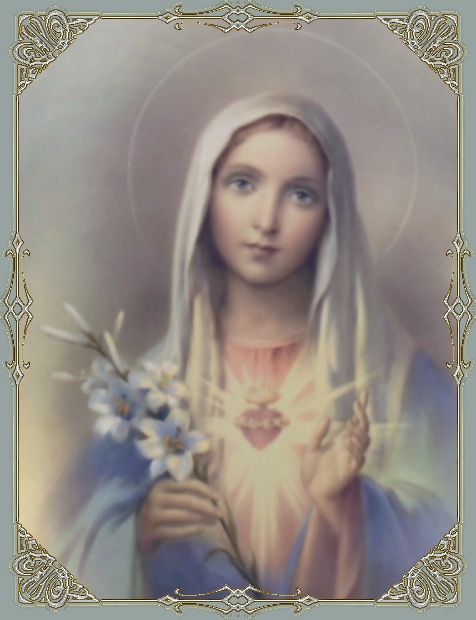Author: DWLP
Fatima Apparition of 13 September 1917
THE TRIUMPH, THE SECOND COMING AND THE EUCHARISTIC REIGN
To read about the “THE TRIUMPH, THE SECOND COMING AND THE EUCHARISTIC REIGN” Click the Link or the picture.
Fatima Apparition of 19 August 1917
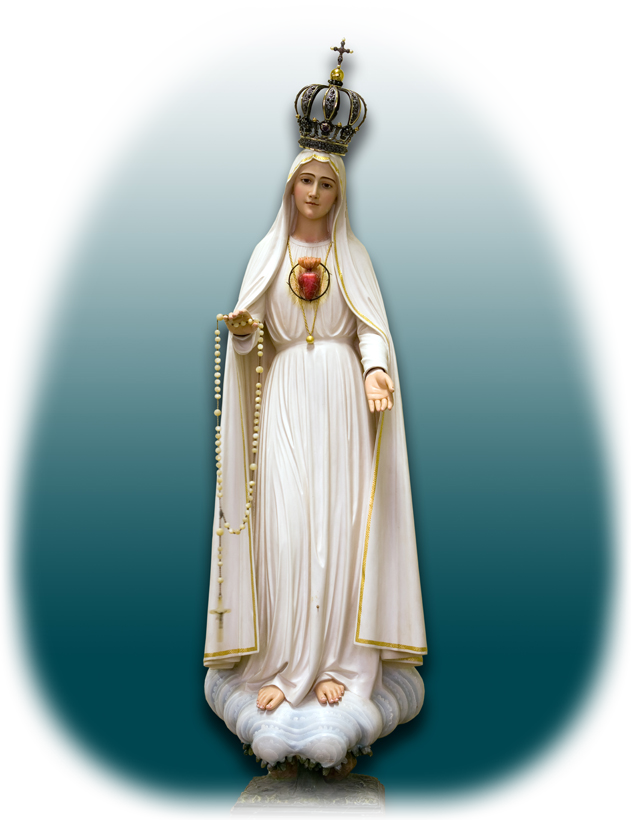
Under the pretext of providing his personal automobile, so that the children could travel safely through the crowds pressing around their homes, the civil Administrator or Mayor of the district in which Fátima was located, arrived in Aljustrel on the morning of August 13th. A previous attempt on August 11th to obtain the “truth” from the children having been unsuccessful, Artur Santos, an apostate Catholic and high Mason, had devised a scheme by which he would take them into custody and force them to reveal all. With a show of good will he now offered to take the three and their parents to see the parish priest, whom he claimed wished to see them, and then to the Cova. At the parish house he abandoned this ruse, and the parents, taking the children alone from there to the district headquarters in Vila Nova de Ourem, some 9 miles away. Here he tried bribes, threats of death and locking them in a cell with other “criminals” in order to get them to recant their story. It was to no avail. Despite their ages, their belief in the Lady and their courage was unshakeable.
Meanwhile, in the Cova at noon on the 13th the characteristic external signs of the Apparition appeared for the benefit of the crowd, the greatest crowd to that time. After they ended the crowd dispersed, as yet unaware of the trickery of the government.
The “trial” of the children, however, continued for two days, to the consternation of their families. Finally, on the Feast of the Assumption, August 15, the Administrator had them driven back to Fátima and deposited on the steps of the rectory. Here they were seen as the people, who had just come from Mass, were trying to determined from Ti Marto where the children were. Their anger was poured out on the driver, and on the Mayor when he arrived a little later, both of whom were no doubt glad to be rid of their little charges and to escape unscathed. It would effectively be the only serious effort of the civil authorities to interfere with the Lady of Fátima.
As it was the Lady’s plans were delayed slightly. On Sunday the 19th Lucia, her brother John, and Francisco, were grazing the sheep at a place known as Valinhos. It was located on the side of the same hillock opposite Aljustrel where the angel appeared twice, though a little farther north. At apout 4 o’clock, sensing that Our Lady was about to appear, Lucia tried unsuccessfully to get John to fetch Jacinta, until she offered him a couple pennies for the errand. As she and Francisco waited they saw the characteristic light. The moment Jacinta arrived the Lady appeared.
“What do you want of me?”
Come again to the Cova da Iria on the thirteenth of next month, my child, and continue to say the Rosary every day. In the last month I will perform a miracle so that all may believe.
“What are we to do with the offerings of money that people leave at the Cova da Iria?”
I want you to have two ardors [litters to carry statues] made, for the feast of Our Lady of the Rosary. I want you and Jacinta to carry one of them with two other girls. You will both dress in white. And then I want Francisco, with three boys helping him, to carry the other one. The boys, too, will be dressed in white. What is left over will help towards the construction of a chapel that is to be built here.
Lucia then asked for the cure of some sick people.
Some I will cure during the year.”
(looking sadly at them) Pray, pray very much. Make sacrifices for sinners. Many souls go to hell, because no one is willing to help them with sacrifice.
Having said that she departed as she had on the other occasions.
From ewtn
Fatima Apparition of 13 August 1917
During World War I Pope Benedict XV made repeated but forlorn pleas for peace, and finally, in May 1917, made a direct appeal to Mary to intercede for peace in the world. The response was Mary’s first appearance at Fatima just over a week later. At this time Fatima was just a small village about seventy miles north of Lisbon; the three children to whom she appeared were Lucia dos Santos, aged ten, and her cousins Francisco and Jacinta Marto, brother and sister, aged eight and seven respectively.
As 13 August approached, the story of the apparitions had reached the anti-religious secular press, and while this ensured that the wh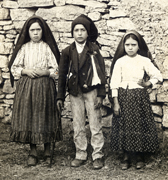 ole country knew about Fatima, it also meant that many biased and negative reports were circulating. The children were kidnapped on the morning of the 13th by the Mayor of Vila Nova de Ourem, Arturo Santos. They were interrogated about the secret; but despite his threats and promises of money, they refused to divulge it. In the afternoon they were moved to the local prison and threatened with death but determined that they would die rather than reveal the secret.
ole country knew about Fatima, it also meant that many biased and negative reports were circulating. The children were kidnapped on the morning of the 13th by the Mayor of Vila Nova de Ourem, Arturo Santos. They were interrogated about the secret; but despite his threats and promises of money, they refused to divulge it. In the afternoon they were moved to the local prison and threatened with death but determined that they would die rather than reveal the secret.
On August 19, Lucia, Francisco and Jacinta were assembled at a place called Valinhos, near Fatima, late in the afternoon, when they again saw Mary, who spoke to Lucia: “Go again to the Cova da Iria on the 13th and continue to say the Rosary every day.” Mary also said she would perform a miracle, so all would believe, and that if they had not been kidnapped it would have been even greater.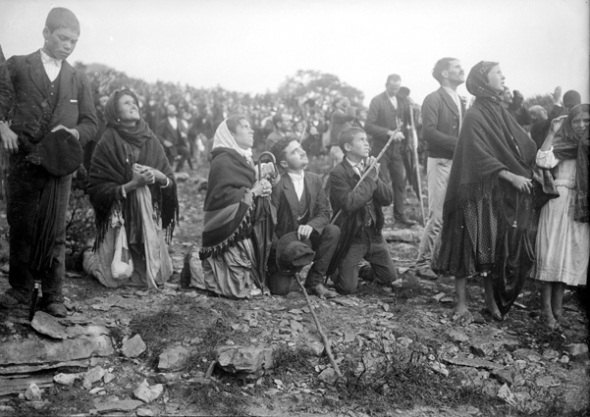
Looking very sad, Mary then said: “Pray, pray very much, and make sacrifices for sinners; for many souls go to hell, because there are none to sacrifice themselves and pray for them.” With that she rose into the air and moved towards the east before disappearing.
By now the children had thoroughly absorbed Mary’s plea for prayer and penance, and did everything they could to answer it. They prayed for hours while lying prostrate on the ground and went as long as they could without drinking, in the burning heat of the Portuguese summer. They also went without food, as a sacrifice for sinners, to save them from hell, the vision of which had so profoundly effected them. They even knotted some pieces of old rope around their waists as a form of mortification, not removing them day or night.
The Father Speaks to His Children
[gview file=”http://luisapiccarreta.me/wp-content/uploads/2012/08/The-Father-Speaks-to-His-Children.pdf”]
Fatima Apparition of 13 July 1917
 During World War I Pope Benedict XV made repeated but forlorn pleas for peace, and finally, in May 1917, made a direct appeal to Mary to intercede for peace in the world. The response was Mary’s first appearance at Fatima j
During World War I Pope Benedict XV made repeated but forlorn pleas for peace, and finally, in May 1917, made a direct appeal to Mary to intercede for peace in the world. The response was Mary’s first appearance at Fatima j ust over a week later. At this time Fatima was just a small village about seventy miles north of Lisbon; the three children to whom she appeared were Lucia dos Santos, aged ten, and her cousins Francisco and Jacinta Marto, brother and sister, aged eight and seven respectively.
ust over a week later. At this time Fatima was just a small village about seventy miles north of Lisbon; the three children to whom she appeared were Lucia dos Santos, aged ten, and her cousins Francisco and Jacinta Marto, brother and sister, aged eight and seven respectively.
On 13 July the three children assembled at the Cova and again they saw the indescribably beautiful Lady over the holmoak. Lucia asked what she wanted, and Mary replied: “I want you to come here on the 13th of next month, to continue to pray the Rosary every day in honour of Our Lady of the Rosary, in order to obtain peace for the world and the end of the war, because only she can help you.”
Lucia then asked her who she was and for a miracle so everyone would believe: “Continue to come here every month. In October, I will tell you who I am and what I want, and I will perform a miracle for all to see and believe.”
Lucia made some requests for sick people, to which Mary replied that she would cure some but not others, and that all must say the rosary to obtain such graces, before continuing: “Sacrifice yourselves for sinners, and say many times, especially when you make some sacrifice: O Jesus, it is for love of You, for the conversion of sinners, and in reparation for the sins committed against the Immaculate Heart of Mary.”
The vision of hell
Lucia later revealed that as she spoke these words, Mary opened her hands and rays of light from them seemed to penetrate the earth so that they saw a terrifying vision of hell, full of demons and lost souls amidst indescribable horrors.
This vision of hell was the first part of the “secret” of Fatima, and was not revealed until much later. The children looked up to the sad face of the Blessed Virgin, who spoke to them kindly:
of hell was the first part of the “secret” of Fatima, and was not revealed until much later. The children looked up to the sad face of the Blessed Virgin, who spoke to them kindly:
“You have seen hell where the souls of poor sinners go. To save them, God wishes to establish in the world devotion to my Immaculate Heart. If what I say to you is done, many souls will be saved and there will be peace. The war is going to end; but if people do not cease offending God, a worse one will break out during the pontificate of Pius XI. When you see a night illumined by an unknown light, know that this is the great sign given you by God that he is about to punish the world for its crimes, by means of war, famine, and persecutions of the Church and of the Holy Father.
“To prevent this, I shall come to ask for the consecration of Russia to my Immaculate Heart, and the Communion of Reparation on the First Saturdays. If my requests are heeded, Russia will be converted, and there will be peace; if not, she will spread her errors throughout the world, causing wars and persecutions of the Church. The good will be martyred, the Holy Father will have much to suffer, various nations will be annihilated. In the end, my Immaculate Heart will triumph. The Holy Father will consecrate Russia to me and she will be converted, and a period of peace will be granted to the world.”
At this point the second part of the secret of Fatima ends and the third part begins with the words, “In Portugal the dogma of the faith will always be preserved … ” The first two parts of the secret only became publicly known in 1942. The third part of the secret has only recently been publicly divulged, in June 2000.
Mary specifically told Lucia not to tell anyone about the secret at this stage, apart from Francisco, before continuing: “When you pray the Rosary, say after each mystery: O my Jesus, forgive us, save us from the fire of hell. Lead all souls to heaven, especially those who are most in need.” After assuring Lucia that there was nothing more, Mary disappeared off into the distance.
July – Month of the Precious Blood
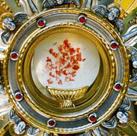 July – Month of the Precious Blood
July – Month of the Precious Blood
The month of July is dedicated to the Precious Blood. The feast of the Precious Blood of our Lord was instituted in 1849 by Pius IX, but the devotion is as old as Christianity. The early Fathers say that the Church was born from the pierced side of Christ, and that the sacraments were brought forth through His Blood.
“The Precious Blood which we worship is the Blood which the Savior shed for us on Calvary and reassumed at His glorious Resurrection; it is the Blood which courses through the veins of His risen, glorified, living body at the right hand of God the Father in heaven; it is the Blood made present on our altars by the words of Consecration; it is the Blood which merited sanctifying grace for us and through it washes and beautifies our soul and inaugurates the beginning of eternal life in it.”
The Old Testament
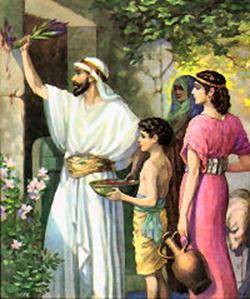 Cain and Abel are making an offering. Abel’s sacrifice is pleasing to God, Cain’s is not. This gives rise to the sin of hatred, and fratricide is its resolution. The thirsting earth soaks up Abel’s blood as it shouts to heaven for vengeance. This shouting prefigured the scene on Calvary, where Christ’s Blood cried to heaven for the redemption of mankind.
Cain and Abel are making an offering. Abel’s sacrifice is pleasing to God, Cain’s is not. This gives rise to the sin of hatred, and fratricide is its resolution. The thirsting earth soaks up Abel’s blood as it shouts to heaven for vengeance. This shouting prefigured the scene on Calvary, where Christ’s Blood cried to heaven for the redemption of mankind.
Millenia pass, and now we see Israel oppressed by Egypt. God commands the people to kill a lamb and to sprinkle the doorposts with its blood; houses thus besprinkled are spared by the messenger of death. But where the doors are not reddened with the blood of the lamb, all male firstborn from king to slave die. This blood on the doorposts was a type of the Blood of Christ. Can the blood of a lamb save a man? No, but as a figure of the Redeemer’s Blood it certainly does. For when the Destroyer sees the thresholds of a human heart marked with Christ’s sacred Blood, he must pass by. And another soul is saved.
In a vision the prophet Isaias saw a man treading out grapes (in the Orient, trampling upon grapes in the wine-press was the usual means of extracting the juice). The prophet asked the man: “Why are your garments so red? “The wine-press I have trodden alone,” he answers, “because from the nations there is no one with me.” The trodder of the wine-press is Christ, His garments crimsoned by the Blood of redemption.
Excerpted from The Church’s Year of Grace , Pius Parsch
The New Testament
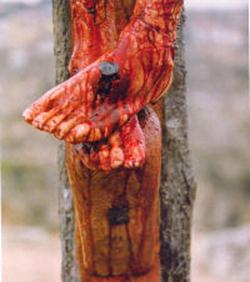 The Church reminds us of the first drops of blood that flowed for our redemption on the day when Jesus was circumcised.
The Church reminds us of the first drops of blood that flowed for our redemption on the day when Jesus was circumcised.
It is night on Mount Olivet, and the moon is shining. We see the holy face crimsoned with blood during the agony in the garden.
Unhappy, despairing Judas casts the blood-money down in the temple. “I have betrayed innocent blood!”
In the scourging chamber we see the Lord in deepest humiliation; under raw strokes the divine Blood spurts out over the floor. Christ is led before Pilate. Pilate shows the blood-covered Body to the crowds: Ecce homo! We go through Jerusalem’s streets following the bloody footsteps to Golgotha. Down the beams of the Cross blood trickles. A soldier opens the sacred side. Water and Blood.
Excerpted from The Church’s Year of Grace , Pius Parsch
Symbols of the Precious Blood
 Adam is sleeping an ecstatic sleep. God opens his side, removes a rib and forms Eve, the mother of all the living. But our view transcends this action and in spirit we behold the second, the divine Adam, Christ. He is sleeping the sleep of death. From His opened side blood and water flow, symbols of baptism and the Eucharist, symbols of the second Eve, the Church, the Mother of all the living. Through blood and water Christ willed to redeem God’s many children and to lead them to an eternal home.
Adam is sleeping an ecstatic sleep. God opens his side, removes a rib and forms Eve, the mother of all the living. But our view transcends this action and in spirit we behold the second, the divine Adam, Christ. He is sleeping the sleep of death. From His opened side blood and water flow, symbols of baptism and the Eucharist, symbols of the second Eve, the Church, the Mother of all the living. Through blood and water Christ willed to redeem God’s many children and to lead them to an eternal home.
At Jerusalem a service in Yahweh’s honor is taking place on the Day of Atonement. The high priest is making his annual entrance into the holy of holies to sprinkle the blood of bucks and bulls upon the covenant in expiation for the sins of the people. The Church shows us the higher meaning of this rite. Our divine High Priest Christ on the first Good Friday entered that Holy of Holies which is not made with hands nor sprinkled with the blood of bucks and bulls; there He effects, once and for all, with His own Blood man’s eternal redemption.
A finale. Holy Church transports us to the end. The heavenly liturgy is in progress. Upon the altar is the Lamb, slain yet alive, crimsoned by His own Blood. Round about stand the countless army of the redeemed in garments washed white in the Blood of the Lamb. Hosts of the blessed are singing the new canticle of redemption: “You have redeemed us out of every tribe and tongue and nation by Your Blood.”
Now from vision to present reality. How fortunate we are to have divine Blood so near to us, to offer it to the heavenly Father for the sins of the whole world!
Excerpted from The Church’s Year of Grace , Pius Parsch
Devotion to the Precious Blood
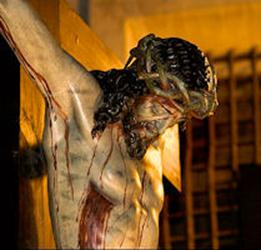 Devotion to the Precious Blood is not a spiritual option, it is a spiritual obligation, and that not only for priests, but for every follower of Christ. I really believe that one of the symptoms of modern society (and I would even include, sadly, modern Catholic society) one of the symptoms of a growing, gnawing secularism is the lessening and the weakening of devotion to the Precious Blood. Devotion, as we know, is a composite of three elements: It is first- veneration, it is secondly- invocation, and it is thirdly- imitation. In other words, devotion to the Precious Blood of Christ, the Lamb of God who was slain, is first of all to be veneration on our part, which is a composite of knowledge, love and adoration. We are to study to come to a deeper understanding of what those two casual words, Precious Blood, really mean.
Devotion to the Precious Blood is not a spiritual option, it is a spiritual obligation, and that not only for priests, but for every follower of Christ. I really believe that one of the symptoms of modern society (and I would even include, sadly, modern Catholic society) one of the symptoms of a growing, gnawing secularism is the lessening and the weakening of devotion to the Precious Blood. Devotion, as we know, is a composite of three elements: It is first- veneration, it is secondly- invocation, and it is thirdly- imitation. In other words, devotion to the Precious Blood of Christ, the Lamb of God who was slain, is first of all to be veneration on our part, which is a composite of knowledge, love and adoration. We are to study to come to a deeper understanding of what those two casual words, Precious Blood, really mean.
I found this passage in the oldest document, outside of sacred scripture, from the first century of the Christian era – to be exact, from Pope St. Clement I, dated about 96 A.D. Says Pope Clement: “Let us fix our gaze on the Blood of Christ and realize how truly precious It is, seeing that it was poured out for our salvation and brought the grace of conversion to the whole world.”
To understand the meaning of the Precious Blood we must get some comprehension of the gravity of sin, of the awfulness of offending God, because it required the Blood of the Son of God to forgive that sin. We are living in an age in which to sin has become fashionable.
This veneration of the Precious Blood, which is the first element in our devotion to the Precious Blood means that we have a deep sensitivity to the awfulness of sin. Sin must be terrible. It must be awful. It must be the most dreadful thing in the universe. Why? Because it cost the living God in human form the shedding of His Blood.
Lord Jesus, You became Man in order by your Passion and Death and the draining of your Blood on the Cross, might prove to us how much You, our God, love us. Protect us, dear Jesus, from ever running away from the sight of blood. Strengthen our weak human wills so that we will not only not run away from the cross, but welcome every opportunity to shed our blood in spirit in union with your Precious Blood, so that, dying to ourselves in time we might live with You in Eternity. Amen
Excerpted from The Precious Blood of Christ, Fr. John A. Hardon, S.J.
THE LITANY OF THE MOST PRECIOUS BLOOD
Lord, have mercy on us.
Christ, have mercy on us.
Lord, have mercy on us.
Christ, hear us.
Christ, graciously hear us.
God, the Father of Heaven, Have mercy on us.
God, the Son, Redeemer of the world, Have mercy on us.
God, the Holy Spirit, Have mercy on us.
Holy Trinity, one God, Have mercy on us.
Blood of Christ, only begotten Son of the Eternal Father, Save us.
Blood of Christ, Incarnate Word of God, **
Blood of Christ, of the New and Eternal Testament,
Blood of Christ, falling upon the earth in the Agony,
Blood of Christ, shed profusely in the Scourging,
Blood of Christ, flowing forth in the Crowning with Thorns,
Blood of Christ, poured out on the Cross,
Blood of Christ, price of our salvation,
Blood of Christ, without which there is no forgiveness,
Blood of Christ, Eucharistic drink and refreshment of souls,
Blood of Christ, stream of mercy,
Blood of Christ, victor over demons,
Blood of Christ, courage of martyrs,
Blood of Christ, strength of confessors,
Blood of Christ, bringing forth virgins,
Blood of Christ, help of those in peril,
Blood of Christ, relief of the burdened,
Blood of Christ, solace in sorrow,
Blood of Christ, hope of the penitent,
Blood of Christ, consolation of the dying,
Blood of Christ, peace and tenderness of hearts,
Blood of Christ, pledge of Eternal Life,
Blood of Christ, freeing souls from Purgatory,
Blood of Christ, most worthy of all glory and honor,
**Save us.
Lamb of God, Who takes away the sins of the world, Spare us, O Lord.
Lamb of God, Who takes away the sins of the world, Graciously hear us, O Lord.
Lamb of God, Who takes away the sins of the world, Have mercy on us.
You have redeemed us, O Lord, in Your Blood – and made us, for our God, a Kingdom.
Let us Pray:
Almighty and Eternal God, You have appointed Your only begotten Son the Redeemer of the world, and willed to be appeased by His Blood, grant, we beg of You, that we may worthily adore this price of our salvation, and through its power be safeguarded from the evils of this present life, so that we may rejoice in its fruits forever in Heaven. Through the same Christ our Lord. Amen.
June 16 Devotion to the Immaculate Heart of Mary
Feast of The Immaculate Heart of Mary in the Divine Will
Luke 2:19: But Mary treasured all these things, pondering them in her heart.
Luke 2:35: And thy own soul a sword shall pierce, that, out of many hearts thoughts may be revealed.
Luke 2:51: And he went down with them and came
to Nazareth and was subject to them. And his mother kept all these words in her heart.
Devotion to the Sacred Heart of Jesus focuses mostly on His divine love for mankind and encourages our humility, gratitude, obedience, and adoration; devotion to the Immaculate Heart of Mary focuses on Mary’s love for God and encourages our emulating her humility, gratitude, obedience, and adoration. Mary as loving Mother of Jesus Who suffered for us; Mary as Mother of the Church; Mary as obedient daughter, Mary as our Gevirah (Queen Mother of Israel) — we ponder her interior life in each of these roles, consecrate ourselves to Jesus through her, make reparations for offending her as our Mother, ask her intercession for us with her Son, and emulate her as the model of Christian perfection.
The Feast of Candlemas, which commemorates Mary’s ritual Purification and her Presentation of Jesus in the Temple, sheds special light on the nature of devotion to her Immaculate Heart. The old man, Simeon, foretold that “a sword” shall pierce Mary’s heart, and meditating on the sorrows symbolized by that sword helps us to understand what Our Lord went through for us. We do this not only on Candlemas, but on the Feast of the Seven Sorrows, during all of Passiontide, as we make the Stations of the Cross, during August, which is devoted to the Immaculate Heart, during September, which is devoted to the Seven Sorrows, etc.
While, early on, of course, the Church Fathers wrote of Mary’s blessedness, purity, and sorrows, and our Saints — Dominic, Gertrude, Thomas Becket, Bridget, Bernardine of Siena, Louis de Montfort — have always had deep Marian devotions, it was after the apparitions of Mary experienced by St. Catherine Labouré at Rue Du Bac, Paris in 1830 that devotions specifically to Mary’s Immaculate Heart became formalized.
Specific Devotions
 Mary appeared to St. Catherine Labouré standing on a globe, rays of light streaming from her fingers, enframed in an oval frame inscribed with the words, “O Mary, conceived without sin, pray for us who have recourse to thee.” The whole vision “turned” showing the back of the oval inscribed with the letter “M” entwined with a Cross, and the hearts of Jesus and Mary, the former surrounded with thorns, the latter pierced with a sword. 12 stars circled this oval frame. Mary told her to strike a medal in this form — a medal now known as the “Miraculous Medal” — and that all who wore it properly after having it blessed would receive graces. The wearing of the Miraculous Medal has become one of the most common devotions to the Immaculate Heart.
Mary appeared to St. Catherine Labouré standing on a globe, rays of light streaming from her fingers, enframed in an oval frame inscribed with the words, “O Mary, conceived without sin, pray for us who have recourse to thee.” The whole vision “turned” showing the back of the oval inscribed with the letter “M” entwined with a Cross, and the hearts of Jesus and Mary, the former surrounded with thorns, the latter pierced with a sword. 12 stars circled this oval frame. Mary told her to strike a medal in this form — a medal now known as the “Miraculous Medal” — and that all who wore it properly after having it blessed would receive graces. The wearing of the Miraculous Medal has become one of the most common devotions to the Immaculate Heart.
 Devotion to the Immaculate Heart became even more popularized after Mary’s appearing to the three young shepherd children at Fatima, Portugal in 1917 (before the Russian Revolution), when she asked that Russia be consecrated to her Immaculate Heart to prevent the spread of “the errors of Russia.” Eight years later, in 1925, Mary appeared to one of the visionaries — Lucia, who’d since become a nun — and requested reparations for the various ways in which her Immaculate Heart was offended — such as attacks against her Immaculate Conception, virginity and divine maternity, and for those who teach their children contempt of Mary or who insult her by desecrating her images.
Devotion to the Immaculate Heart became even more popularized after Mary’s appearing to the three young shepherd children at Fatima, Portugal in 1917 (before the Russian Revolution), when she asked that Russia be consecrated to her Immaculate Heart to prevent the spread of “the errors of Russia.” Eight years later, in 1925, Mary appeared to one of the visionaries — Lucia, who’d since become a nun — and requested reparations for the various ways in which her Immaculate Heart was offended — such as attacks against her Immaculate Conception, virginity and divine maternity, and for those who teach their children contempt of Mary or who insult her by desecrating her images.
To make these reparations, she asked that we do 5 things, all with the intention of making reparation to her Immaculate Heart:
- recite at least Five Decades of the Rosary every day
- wear the Brown Scapular
- offer our daily duty to God as an act of sacrifice (ie., make the Morning Offering)
- make Five First Saturdays of Reparation to Her Immaculate Heart (see below)
- the Pope, in union with all the bishops of the world, must consecrate Russia to Her Immaculate Heart. Russia would be converted through this means, and a period of peace to be given to the world. If this is not done (and it hasn’t been done), Russia will “spread her errors throughout the world.” This consecration must be of Russia — not “the world,” but Russia by name.
The “First Saturdays of Reparation” was not a new devotion, but it was even more popularized after Our Lady appeared at Fatima. It consists of, on the first Saturday of each month for five consecutive months:
- going to Confession (may be 8 days before the Saturday as long as one stays in a state of grace)
- receiving the Eucharist
- praying 5 decades of the Rosary, including the Fatima Prayer
- “keeping her company” for 15 minutes while meditating on all of the Mysteries of the Rosary with the intention of making reparation to her. This can be done by reading Scripture or other writings relevant to the Mysteries, meditating on pictures of the Mysteries, or simple meditation.
The promise given by Mary to those who make the First Saturday devotion is her assistance at the hour of their death.
Fatima Apparition of 13 June 1917
Apparition of 13 June 1917
In Portugal the 13th of June is a great feast, the feast of St. Anthony of Lisbon, known to most Catholics as St. Anthony of Padua. This Franciscan miracle-worker was born in Lisbon and had entered religious life as a Canon Regular of the Holy Cross, residing first in Lisbon and then Coimbra, before leaving the Portuguese order for the new Order of Friars Minor and a hope of martyrdom. It was, and is, THE children’s feast in Portugal, so the parents of Lucia naturally thought that the festivities at the parish church in Fátima would distract her from the appointment at the Cova. However, undismayed by this tactic Lucia and the Marto children proceeded to the apparition site to keep their noon day rendezvous.
When they arrived they found a small crowd awaiting them.
After having said the rosary with Jacinta and Francisco and other people who were present, we saw again the reflection of light nearing us, (we used to say it was lightening), and following, Our Lady on the holm oak as in May.
“Please tell me, Madam, what it is that you want of me?”
I want you to come here on the thirteenth of next month. I want you to continue saying the Rosary every day. And after each one of the mysteries, my children, I want you to pray in this way: O my Jesus, forgive us our sins , save us from the fire of hell. Take all souls to heaven, especially those who are most in need. I want you to learn to read and write, and later I will tell you what else I want of you.
Yes, I shall take Jacinta and Francisco soon, but you will remain a little longer, since Jesus wishes you to make me known and loved on earth. He wishes also for you to establish devotion in the world to my Immaculate Heart.
“Must I remain in the world alone?”
Not alone, my child, and you must not be sad. I will be with you always, and my Immaculate Heart will be your comfort and the way which will lead you to God.
The moment she said the last words, opening her hands, She transmitted to us, for the second time, the reflection of that intense light. In it we felt we were submerged in God. Jacinta and Francisco seemed to be in that part of the light which was rising to Heaven, and I in the part spreading over the earth. In front of the palm of Our Lady’s right hand was a heart encircled with thorns which appeared to pierce it. We understood it was the Immaculate Heart of Mary offended by the sins of mankind, craving reparation.
The apparition then concluded as on the first occasion, with the Lady going off toward the east and disappearing in the “immensity of heaven.”
Despite the joy of those precious moments the sorrows of the children continued in the following weeks, moderated by the belief of very many at the Cova that day. They knew that something unusual had occurred – they saw the “lightening,” some perceived a certain dimming of the sun, others a little gray cloud that came and went as the apparition did and they believed. However, the difficulties with their families did not abate, especially with their mothers, who became genuinely alarmed that the events were not just continuing but expanding. To this was added the painful caution of the parish priest, that after all it might be real but of demonic origin.
